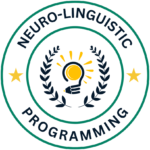Over the past few years, Neuro-Linguistic Programming (NLP) has emerged as a transformative tool for coaches seeking to enhance their practice and achieve greater client outcomes. By integrating NLP techniques into your coaching framework, you gain insightful methods for facilitating change, improving communication, and unlocking the potential within your clients. In this blog post, you will discover the key principles of NLP and how they can propel your coaching success to new heights, empowering both you and your clients on the journey of personal development.
Understanding NLP Fundamentals in Coaching
Before you begin on your journey to integrate Neuro-Linguistic Programming (NLP) into your coaching practice, it’s necessary to grasp its core principles. NLP is built on the premise that your thoughts, language, and behaviors are interconnected, significantly influencing your emotional states and actions. When you apply NLP in coaching, you gain tools that help you understand how your clients perceive the world and what drives their behaviors. This understanding enables you to facilitate transformation more effectively, as you can tailor your approach to meet individual needs. By leaning into these core principles, you set a strong foundation for your clients to explore their potential and reframe their challenges.
Core Principles of NLP
Coaching using NLP involves unlocking the inherent potential in every individual by focusing on three key elements: flexibility of thought, the importance of language in shaping experiences, and the understanding that people often operate from their own unique maps of reality. When you adapt your coaching style to be as flexible as your clients’ needs demand, you create a supportive environment where they feel empowered to explore new perspectives. Language plays a vital role in this process, as the specific words and phrases you use can guide your clients toward self-discovery and change. Understanding that each person’s perception of reality is distinct allows you to meet them where they are and navigate their personal growth journey more effectively.
The NLP Communication Model
One of the foundational components of NLP is the Communication Model, which emphasizes how individuals process information and how this processing affects their interactions. This model illustrates that when your clients communicate, they filter their experiences through their sensory perceptions—visual, auditory, and kinesthetic modalities. By recognizing this, you can help them understand how these filters shape their thoughts, feelings, and behaviors. Encouraging your clients to explore their filters assists them in breaking down mental barriers and enhancing their communication skills, ultimately leading to deeper connections and improved outcomes in their personal and professional lives.
Indeed, the NLP Communication Model serves as a powerful tool in your coaching toolkit. By understanding how your clients perceive and respond to the world around them, you can better tailor your conversations and interventions to match their communication style. This not only enhances your effectiveness as a coach but also fosters trust and rapport, making it easier for your clients to open up and engage in meaningful dialogue. As you embrace this model, you’ll find that it enriches your coaching practice and helps you guide your clients toward successful outcomes.
NLP Techniques for Effective Coaching
There’s a profound array of NLP (Neuro-Linguistic Programming) techniques that can enhance your coaching practice and lead to impactful results for your clients. By integrating NLP into your approach, you tap into methods that foster deeper understanding and more effective communication. If you’re eager to probe deeper into applying these concepts, check out The Language of Change: Using NLP in Leadership Coaching for comprehensive insights and strategies.
Rapport Building and Mirroring
Across the coaching landscape, rapport building stands out as an indispensable skill. Establishing a strong connection with your clients fosters an open, trustful environment where they feel safe to explore vulnerabilities and aspirations. Mirroring, a powerful NLP technique, involves subtly mimicking your client’s gestures, speech patterns, or attitudes, creating an unconscious bond that encourages greater communication and understanding.
Language Patterns and Reframing
Around the core of effective coaching lies the importance of language. Your choice of words can either empower your clients or reinforce limitations. NLP offers specific language patterns that guide clients toward different perspectives. By using reframing techniques, you help clients shift their thoughts about challenges, enabling them to view obstacles as opportunities for growth rather than hindrances to success.
In fact, these language patterns not only facilitate new ways of thinking but also encourage clients to adopt a more proactive mindset. By reframing negative experiences, you empower clients to see their potential rather than their past limitations, fostering a renewed sense of motivation and resilience. This transformative process not only enhances their journey but solidifies your role as a guide in their growth. Utilizing these NLP techniques effectively can create profound shifts in your coaching approach, leading to substantial progress for your clients.
Implementing NLP Tools in Coaching Sessions
Assuming you are ready to bring NLP into your coaching sessions, it is vital to understand how to leverage its tools effectively. NLP tools can be integrated seamlessly into your coaching framework, enabling you to enhance your clients’ experiences and outcomes. By identifying and utilizing specific techniques, you can create a deeper connection with your clients, allowing for profound personal development and transformation during your sessions.
Meta Programs and Motivation
Programs that govern your clients’ behaviors and decision-making processes can significantly impact their motivation and goals. By identifying these meta programs, you can better understand what drives your clients and how they perceive their challenges. This knowledge enables you to tailor your coaching approach to activate their intrinsic motivation, aligning their goals with their values and preferred strategies for success.
Timeline Therapy and Goal Setting
After establishing motivation, incorporating Timeline Therapy can be a transformative aspect of your coaching practice. This method allows you to guide your clients through their past experiences and identify limiting beliefs that may hinder their progress. By helping them reframe these memories, you create a pathway for setting clear, actionable goals that resonate with their visions for the future. The structured yet flexible nature of Timeline Therapy aids in creating a solid foundation for your clients, enhancing their sense of accountability and self-awareness.
Another effective approach within Timeline Therapy is the focus on future pacing, where you assist clients in visualizing their desired outcomes in a specific timeline. By encouraging them to vividly imagine achieving their goals, you reinforce their commitment and determination. The mental rehearsal involved in this technique helps solidify their motivation and fosters a proactive mindset as they navigate their journey toward success.
Advanced NLP Strategies for Coaches
Unlike traditional coaching methods, integrating advanced NLP strategies can significantly elevate your coaching sessions and enhance your clients’ outcomes. By adopting these tactics, you can provide impactful guidance that not only addresses surface-level issues but also taps into deeper cognitive and emotional processes. Below is a list of imperative techniques that can transform your coaching approach:
- Anchoring Techniques
- Reframing Perspectives
- Meta-Modeling
- Chunking Information
- Strategies for Building Rapport
NLP Techniques Overview
| Technique | Description |
| Anchoring | Creating association between a stimulus and a desired state. |
| Reframing | Changing the context of a situation to alter its meaning. |
| Meta-Modeling | Asking questions to clarify experiences and beliefs. |
| Chunking | Breaking down information into manageable pieces. |
| Rapport Building | Establishing connection through mirroring and matching. |
Anchoring and State Management
Coaches can utilize anchoring techniques to help clients evoke certain emotional states or mental resources on demand. By establishing specific triggers—whether physical gestures, sounds, or visual cues—you can guide your clients to access empowerment or calmness whenever needed. These techniques facilitate state management and allow your clients to navigate challenges with more ease and confidence.
Additionally, anchoring helps clients to cement positive experiences and emotions, contributing to a healthier mental framework. Implementing this technique effectively within your coaching sessions can lead to lasting changes in how your clients respond to various situations, making it a powerful tool for ongoing development.
Values and Beliefs Integration
Behind every decision and behavior lie your clients’ values and beliefs. As a coach, understanding and integrating these elements into your sessions is paramount for fostering long-lasting growth. By unearthing your clients’ core values, you can help them align their life goals and decisions with those fundamental principles, resulting in greater motivation and satisfaction.
When you assist clients in identifying and resolving conflicting beliefs, you empower them to create congruence between their actions and values, leading to transformational changes. It is imperative to facilitate this integration effectively, as it ultimately shapes the narrative your clients tell themselves about their abilities and potential.
Further, deepening your understanding of your clients’ values and beliefs can uncover points of resistance or barriers to progress. By addressing these areas, you not only enhance their self-awareness but also provide them with the tools to overcome such obstacles effectively. This process fosters a deeper sense of achievement and personal growth in your clients, ensuring that your coaching practice yields meaningful results.
Measuring Coaching Success with NLP
Many coaches recognize that measuring success is key to refining their approach and ensuring clients achieve their desired outcomes. By leveraging Neurolinguistic Programming (NLP) techniques, you can establish clear benchmarks that allow you to assess the effectiveness of your coaching sessions. This involves not only a qualitative analysis of your clients’ experiences but also a quantitative evaluation of their progress over time. With well-defined metrics and consistent evaluation methods, you can spotlight areas of improvement and maintain a strategic focus on achieving transformational change in your clients’ lives.
Progress Tracking Methods
At the heart of measuring your coaching success lies the implementation of robust progress tracking methods. Your coaching sessions should begin with setting specific, measurable goals tailored to your client’s needs and aspirations. Utilizing tools such as regular feedback forms, self-assessment questionnaires, and progress journals enables both you and your clients to visualize their growth over time. In addition, periodic reviews, incorporating techniques from NLP such as anchoring and reframing, can provide valuable insights into the shifts in mindset and behaviors your clients experience throughout the coaching process.
Client Transformation Indicators
Above all, the important indicators of client transformation through NLP can be observed in multiple dimensions of their lives. You should focus on changes in your clients’ attitudes, behaviors, and belief systems, as these are often the most telling signs of trust and efficacy in coaching. When clients start to exhibit increased confidence, improved communication skills, and a more positive outlook towards challenges, you can gauge that significant, lasting change is taking place. By consistently monitoring these indicators, you can adjust your coaching strategies accordingly, ensuring alignment with your clients’ evolving goals.
With a keen eye on client transformation indicators, you empower yourself to shift your coaching methodology in real-time. This adaptability can significantly enhance your ability to foster impactful change, as you gain insight into what resonates best with each client. Emphasizing these measurable results not only reinforces your coaching prowess but also builds a strong rapport with your clients, ensuring they remain engaged and committed to their personal development journey.

Ethical Considerations in NLP Coaching
Keep in mind that as you probe into the world of NLP coaching, ethical considerations must be at the forefront of your practice. Your role as a coach entails navigating a landscape rich with potential but also fraught with responsibilities. Establishing and maintaining professional boundaries is crucial. It’s important that you create an environment that fosters trust and respect, enabling your clients to feel safe. By setting clear boundaries, you differentiate between your coaching relationship and any personal involvement, ensuring that the focus remains solely on your client’s growth and success.
Professional Boundaries
About establishing professional boundaries, it’s your responsibility to clarify the nature of your relationship with clients from the outset. This involves defining the scope of your coaching sessions, communicating your methods, and being transparent about what clients can expect. Additionally, you should be vigilant about avoiding dual relationships or situations that may compromise your objectivity and effectiveness as a coach. Navigating these boundaries will not only enhance your professional integrity but will also empower your clients to engage more fully in the coaching process.
Client Confidentiality
To ensure the effectiveness of your NLP coaching practice, prioritizing client confidentiality is vital. Your clients must trust that the personal information they share will be kept safe and secure. This trust is foundational for a successful coaching relationship, as it allows clients to be open and honest about their challenges and aspirations. Therefore, it’s important to establish confidentiality agreements where appropriate and to communicate your policies clearly to clients. This enables them to understand their rights and the limits of confidentiality in your coaching sessions.
And beyond establishing confidentiality agreements, consider the implementation of secure methods for storing information, whether digitally or physically. Protecting sensitive data is not merely a legal obligation but also a cornerstone of ethical practice. When your clients are assured that their information remains confidential, they can fully engage in the process, paving the way for deeper insights and transformative breakthroughs in their coaching journey.
To wrap up
With this in mind, exploring the power of NLP for your coaching practice can significantly enhance your ability to connect with clients and facilitate meaningful transformations. By integrating NLP techniques into your coaching toolbox, you empower yourself to address both conscious and unconscious barriers your clients may face. This approach not only enriches your coaching methods but also fosters a deeper understanding of human behavior, equipping you to tailor your strategies effectively to suit individual needs.
Moreover, embracing NLP can streamline your process, allowing for faster, more profound results for your clients. As you research into various NLP principles and methodologies, you can cultivate a more insightful, empathetic coaching style that resonates with the challenges your clients experience. Ultimately, the journey into NLP will not only advance your professional development but also elevate the impact you have on those seeking personal growth and success in their lives.
Q: What is NLP and how can it benefit coaching?
A: NLP, or Neuro-Linguistic Programming, is a set of techniques and methodologies designed to enhance communication, personal development, and psychotherapy. In a coaching context, NLP can help coaches understand their clients’ thought processes and behaviors, enabling effective goal setting, overcoming limiting beliefs, and improving motivation. By exploring NLP, coaches can offer tailored strategies that resonate with their clients, ultimately leading to improved outcomes and faster progress in achieving personal and professional goals.
Q: How can NLP techniques be integrated into coaching sessions?
A: Integrating NLP techniques into coaching sessions can involve various approaches such as anchoring, reframing, and modeling. Anchoring allows coaches to help clients associate specific emotional states with particular triggers, facilitating desired feelings in challenging situations. Reframing involves shifting clients’ perspectives on adverse experiences or beliefs, fostering a more empowering narrative. Modeling enables coaches to emulate effective behaviors and strategies observed in successful individuals, offering clients a roadmap to success. By incorporating these techniques, coaches can create a dynamic and personalized coaching experience that resonates with clients’ unique needs.
Q: What should coaches consider when using NLP?
A: Coaches should take several factors into account when using NLP techniques. First, it is vital to ensure that the techniques align with the client’s objectives and values. Understanding the individual differences among clients is key; what works for one person may not be effective for another. Additionally, coaches should commit to ongoing education about NLP practices to refine their skills and remain sensitive to the evolving landscape of coaching methodologies. Effective use of NLP requires a balance of knowledge, intuition, and adaptability to ensure a supportive environment for clients’ growth and transformation.







